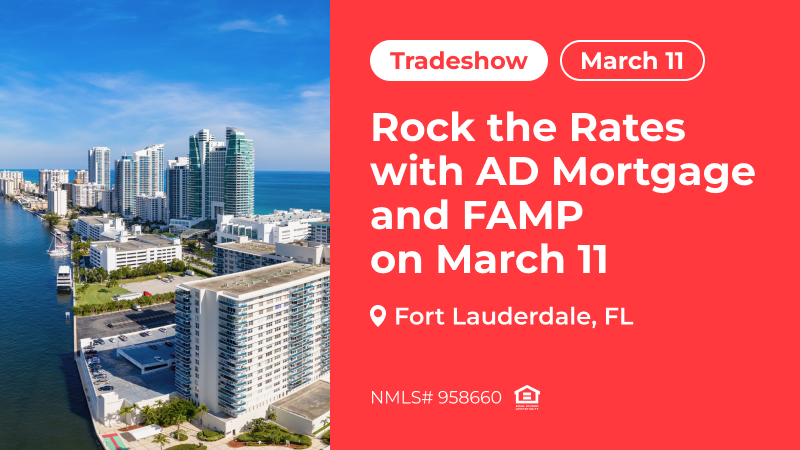
Condotels, or hotel condos, are a great investment option that allows investors to make the best of both worlds. These luxurious properties can be used as a secondary residence or rented out, generating passive income. However, there are also risks that brokers need to be aware of.
Let’s explore the benefits and drawbacks of investing in condotels. We’ll share a broker’s checklist for evaluating condotel location and amenities, and provide an ROI calculation example.
What Are Condotels?
A condotel (condominium hotel) is a type of property that combines the appearance of a condominium with hotel-style occupancy. It consists of units, purchased individually, and amenities such as concierge services, restaurants, gym, pool, and other tourist-attractive facilities. Usually, condotels are located in popular locations like big cities or resort areas.
Hotel vs. Condo vs. Condotel vs. Timeshare
Whereas hotels and condotels might seem similar from the visitor’s perspective, they differ significantly as investments. The condotel entry threshold is more affordable because the units are owned separately. Also, they are operated by a management company, providing the investor with low-maintenance passive income.
Compared to a condo, a condotel offers a significant advantage in that it has all the facilities needed in a hotel. Therefore, it can be rented short-term, generating higher income.
A timeshare, on the other hand, is a form of ownership rather than a type of property. It means that the property has several owners, who have exclusive rights to use the building for defined time periods. Thus, some units in condotels might also be owned as a timeshare, depending on the ownership model.
Why Brokers Should Pay Attention
Although condotels offer unique investment opportunities, there are many risks and considerations that brokers need to share with their clients:
- Higher management fees. For numerous convenient services available at condotels, the owners need to pay fees and commissions, which can reduce the rental income. It’s essential to understand and calculate these costs in advance so that the return on investment (ROI) for this property can be projected accurately.
- Investor surge. In tourist locations, condotels can generate high revenues. However, if too many investors enter the market, the income potential can decline. Additionally, the liquidity decreases, making reselling the units at full price challenging.
- Higher down payment. As investing in condotels might be considered risky due to their dependency on tourism trends, lenders usually ask for a larger down payment compared to traditional properties.
Rental Income Mechanics
The rental income generated by a condotel’s unit largely depends on associated expenses and fees, the way the income is distributed between the investors, and the loan conditions, such as interest rate and down payment.
Rental-Pool Splits & Management Fees
Most condotels work with a rental-pool agreement system, meaning that all operational work is done by the hotel management, and the revenue is then split between the operator and the owner. Usually, the investor receives 40% to 60% of the gross rental income.
In addition to management fees, the unit owner needs to cover HOA fees for building maintenance, capital reserve fees, and other occasional costs.
ADR & Occupancy Benchmarks (2024-2025)
There are two crucial metrics to pay attention to when evaluating the financial potential of a condotel investment.
The average daily rate (ADR) shows the average daily revenue of the property. It significantly varies depending on the condotel location, its characteristics, star rating, and other factors. According to a hotel industry study shared by OysterLink, they found that in 2025, the ADR is expected to reach $162.16 for U.S. hotels. However, beachfront hotels can provide an ADR of $200–$450 per night during peak season.
The occupancy rate is the ratio of booked units to the total number of available units in the condotel. The projected yearly occupancy rate is 63.38%, but this number varies significantly during the year, depending on the season.
Risk Radar & Mitigation
The risks associated with investing in condotel units typically fall into two main categories: unexpected expenses that reduce profit margins, and low ADR or occupancy rates that lower the rental income. The most significant risks that reduce the rental income are HOA fees, tourism cycles, and resale liquidity.
To mitigate these risks, brokers should help their clients understand all associated fees, calculate potential income, and compare different condo-hotel mortgage programs. Carefully choose the location of the property so that there is a stable flow of tourists and no market saturation from competing hotels.
Financing Playbook
Investing in condotels comes with higher risks compared to other, more stable, properties. Therefore, traditional types of loans might not be applicable in this case, and brokers may need to help their clients find more flexible financing solutions.
Consider these types of loans that can be a perfect fit for investing in condotels:
- Non-QM loans. While not qualifying for traditional loans, condotels often meet the requirements for Non-QM loans. They provide better flexibility in terms of underwriting, accepting various income documents, including bank statements and asset depletion.
- DSCR loans. These condotel loans, designed specifically for investors, do not require income or employment documentation. Also, foreign nationals and non-permanent residents may be eligible for DSCR loans.
A crucial metric to calculate when choosing a loan program is the loan-to-value (LTV) ratio. As condotels are considered non-warrantable properties, the required LTV is typically higher than for traditional Fannie Mae and Freddie Mac financing.
The table below shows the maximum LTV ratios for condotels eligible for qualification under A&D Mortgage programs:
| Loan Type | Max. LTV |
|---|---|
| DSCR | 75% |
| ITIN | 70% |
| Foreign National DSCR | 75% |
| 12/24 Month Bank Statement | 75% |
One more thing to consider is reserve funds. Typically, lenders require the borrower to have funds on hand so that they can still service the loan even in times of income shortage. This way, the risks connected to seasonal income and high operational costs are partly mitigated.
Mini-Case: Miami Beach $500K Unit Scenario
Let’s take the financial model for a $500,000 condotel at Miami Beach as an example and calculate the ROI. Note that this is a hypothetical scenario that illustrates the logic behind calculating profitability.
Miami Beach is a perfect place for condotels. This is a popular tourist destination all year long, and it is near the ocean, which drives the demand for short-term rentals. The unit for $500,000 is oceanfront, has a beach and amenities like a pool, gym and restaurant.
The Non-QM DSCR loan conditions for investing in this property:
- LTV = 70%
- Down payment = $150,000
- Loan amount = $350,000
- Interest rate = 7.375% (30 years fixed)
- APR = 7.5%
- Monthly payment = $2,417.36
Monthly operational and management costs:
- HOA fee = $550
- Management fee = $1,650
- Other expenses (insurance, utilities, etc.) = $150
The projected rental income, based on these conditions, is expected to reach $5,500 monthly, taking into account seasonal fluctuations. Excluding the mortgage payment of $2,417.36 and the combined operational costs of $2,350, we expect the monthly net income to be above $700, while still covering the mortgage.
With the reserves and the closing costs combined, the total cash invested in this condotel unit is $181,000. Then, the projected ROI is 4.84%, which is a modest but healthy financial result.
Location & Amenity Checklist for Top ROI
When evaluating a condo hotel for investment purposes, brokers and investors can use our simple checklist. It will help you understand what features are appealing to potential visitors. The more boxes you check, the better.
Is the condotel…
- located in a high-demand tourist destination?
- close to popular attractions: beach, city center, sights, etc.?
- accessible to public transport, roads, or airports?
- located in a place with lower seasonal volatility?
- managed by a well-known operating company like Marriott or Hilton?
- equipped with a pool, gym, or spa?
- equipped with a restaurant, lounge, or bar?
Additionally, pay attention to the in-unit amenities. The better the unit is equipped, the more appealing it is to visitors. Units with a good view of the ocean or mountains are especially in demand.
Broker Action Plan
How can you find the right loan program for a client who wants to invest in a condotel? Follow this step-by-step guide:
- Go through the checklist above to evaluate the appeal of the unit to hotel visitors.
- Pre-qualify the client and explain to them the risks connected with investing in condotel units.
- Select programs that can align with the client’s needs. Opt for lenders such as A&D Mortgage, who offer condotel-specific programs and support this type of loan.
- Calculate the ROI based on the predictable rental income. Consider all management costs and HOA fees. Compare the options, helping your client find the optimum loan conditions.
- Prepare the documents for closing day. This should include both loan-related documents and HOA/building documents.
When comparing program conditions, use the Quick Pricer by A&D Mortgage. The tool helps you easily understand the interest rate and monthly payment based on a number of parameters including FICO, LTV, loan amount, state, number of units, and others.
FAQs: Condotel Loan Requirements
What Credit Score Do You Need for a Condo Loan?
The minimum FICO score for Non-QM condotel loans is 620. However, there is no credit score required for the Foreign National loan programs.
Are Condotels a Good Investment?
Condotels can be a profitable investment, as they are a stable source of passive income. However, this type of investment property is prone to risks. Use our checklist to choose the option that will bring your client the highest ROI.
What are the Benefits of a Condotel?
As an investment property, condotel units are a great opportunity to receive a passive income, while the operational work is done by the hotel management. Moreover, owners can stay in their condotel units as a secondary residence.
Are There Any Risks to Owning a Condotel?
Yes, condotels have their risks including high maintenance and operating costs, high dependence on tourist flow, investor surge, etc.
Is a Condotel a Timeshare?
No, timeshare is the type of ownership when the unit belongs to you for a certain period. When investing in a condotel, you own the unit full time.
Is a Condotel Warrantable?
Typically, a condotel is non-warrantable and, therefore, they cannot be financed through Fannie Mae and Freddie Mac programs. Instead, they are covered by Non-QM loans.
Conclusion
Investing in condotels is a great way for investors to receive passive income while being able to stay in a high-level hotel for a few days. Despite the numerous advantages, there are risks that are crucial to keep in mind.
Brokers can help their clients find investment properties that meet the borrower’s needs while mitigating risks. The Quick Pricer by A&D Mortgage allows brokers to easily calculate interest rates and monthly payments and choose the most optimal loan program. Try out the tool, and feel free to contact us if you have any questions.


